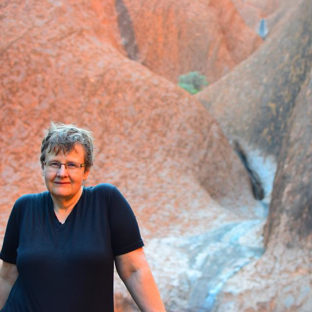Governments used to micromanage the broadcasting business and agonise about what newspaper, TV and radio moguls thought of their policies on media. As users shift to other sources for their news, information and entertainment, are media policy makers asleep at the wheel?
Featuring
Denis Muller
Denis Muller is a leading expert on media ethics and worked as a journalist for 27 years, including as assistant editor at the Sydney Morning Herald and associate editor at the Age.
Since 1995, he has conducted independent social and policy research across education, health, environment and media fields. Dr Muller teaches media ethics for the Master of Journalism at Melbourne University and is the author of Media Ethics and Disasters and Journalism Ethics for the Digital Age. Denis is an Honorary Fellow at the Centre for Advancing Journalism.

Julian Thomas
Julian Thomas is director of the Swinburne Institute for Social Research and Professor or Media and Communications at Swinburne. His research interests are in new media, information policy and the history of communications technologies.
He is the co-author of a new book, Internet on the Outstation: The Digital Divide and Remote Aboriginal Communities (Institute for Network Cultures, 2016). His other recent books are: The Informal Media Economy (Polity, 2015), Amateur Media (Routledge, 2013), and Fashioning Intellectual Property: Advertising, Exhibition and the Press, 1789-1918 (Cambridge University Press, 2012).

Margaret Simons
Margaret Simons is Associate Professor in the School of Media, Film and Journalism, Monash University. In 2015, she won the Walkley Award for Social Equity Journalism. Her recent books include Six Square Metres, Self-Made Man: The Kerry Stokes Story, What's Next in Journalism?, Journalism at the Crossroads and Malcolm Fraser: The Political Memoirs, co-written with former Prime Minister of Australia Malcolm Fraser. The latter won both the Book of the Year and the Douglas Stewart Prize for Non-Fiction at the NSW Premier's Literary Awards 2011.
In addition to her academic work, Margaret regularly writes for the Saturday Paper, the Age, the Sydney Morning Herald, Griffith Review, the Monthly and other publications.
Ellie Rennie
Ellie Rennie is an associate professor at Swinburne University, researching the social implications of technological change, and the technological implications of social change. She is the deputy director of the Swinburne Institute for Social Research.
Her research areas include media policy and community communication, with a current focus on digital inclusion in remote Australia and remote Sarawak. She is Chief Investigator of the ARC Linkage project, 'The Dynamics of Digital Inclusion', working with industry partner One Education (2016–2017), and is leading a project on cyber safety in remote Aboriginal communities with Telstra among other projects.
Her book publications include: Life of SYN: A Story of the Digital Generation (Monash University Press, 2011); Community Media: A Global Introduction (Rowan & Littlefield, 2006); Internet on the Outstation: The digital divide and remote Aboriginal communities (Institute for Network Cultures, 2016).
